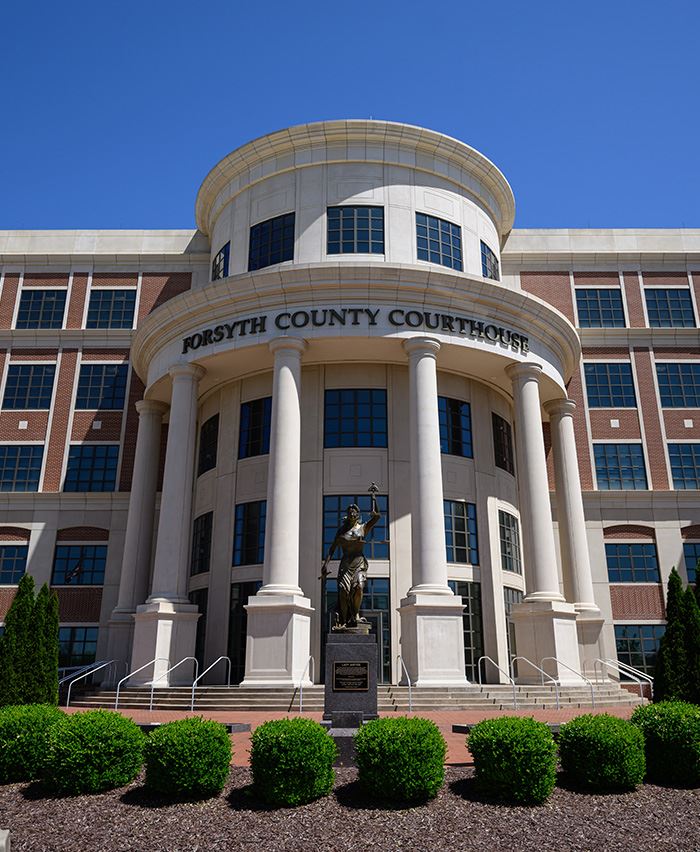

Cumming Rideshare Accident Attorneys
Your Trusted Legal Advocates for Uber & Lyft Accidents in GA
Uber and Lyft have become increasingly prevalent throughout the state of Georgia. These rideshare services are convenient and affordable, and they have made it easier for people to get around. However, the rise of Uber and Lyft has also led to an increase in the number of car accidents on Georgia roads.
When a rideshare driver is involved in a collision, it can be challenging to determine who is liable for the resulting damages. If you were injured in a rideshare accident, you may be wondering how you will be able to recover compensation for your medical expenses, lost earnings, and other damages. At Bettis Law Firm, LLC, our Atlanta rideshare accident lawyers can help you understand your rights and options. We are ready to fight for the maximum compensation you deserve.
Call Bettis Musgrove today at (470) 347-1515 or contact us online to schedule a consultation with our rideshare accident lawyer in Cumming.
What Causes Most Rideshare Accidents?
Rideshare accidents can occur for various reasons, often stemming from a combination of factors. Distracted driving, a leading cause of accidents in general, is particularly prevalent in rideshare incidents. The use of mobile devices by drivers, responding to messages, or navigating through apps can result in a lapse of attention and lead to collisions.
Moreover, fatigue is another significant factor. Rideshare drivers, aiming to maximize earnings, may work long hours, leading to exhaustion and compromised decision-making abilities. Additionally, inadequate driver training can contribute to accidents, as rideshare drivers may lack the necessary skills to handle challenging road situations.
In some instances, rideshare accidents result from technical malfunctions or defects in the vehicles themselves. Whether it's a brake failure or malfunctioning safety features, these issues can escalate into serious accidents.
Injuries Commonly Sustained in Rideshare Accidents
Rideshare accidents can cause a range of injuries, from minor to severe. Passengers, pedestrians, and other drivers on the road may all be at risk. Common injuries include whiplash, fractures, head injuries, and soft tissue damage.
Pedestrians involved in rideshare accidents are particularly vulnerable to severe injuries because of the lack of protection. Passengers within the rideshare vehicle may also sustain injuries, often exacerbated by the fact that they are not in control of the vehicle.
Who Is Liable in a Rideshare Accident?
Determining liability in a rideshare accident can be complex, as several parties may be involved. Here are the main parties that could be liable:
- The Rideshare Driver: If the driver was negligent—such as being distracted, speeding, or driving under the influence—they may be held responsible for the accident.
- The Rideshare Company (Uber or Lyft): In certain situations, the rideshare company may also be liable. This could be the case if the accident occurred while the driver was actively transporting a passenger or en route to pick someone up.
- Other Drivers Involved: If another driver was at fault for the accident, they may be held liable. For example, if a negligent driver caused a crash that involved the rideshare vehicle, the other driver’s insurance would be responsible.
- Vehicle Manufacturers: If a defect in the rideshare vehicle caused the accident (e.g., faulty brakes or airbags), the manufacturer could be liable for damages.
How Liability May Shift:
- If the driver was logged into the app but not carrying a passenger, they may not be covered by the rideshare company’s insurance, making their personal insurance responsible.
- If the driver was actively transporting a passenger, Uber or Lyft’s insurance coverage may come into play. In these cases, the rideshare company’s insurance typically covers injuries and damages.
How Does Insurance Coverage Work in Rideshare Accidents?
Insurance coverage in rideshare accidents can be confusing due to the involvement of both the driver’s personal insurance and the rideshare company’s insurance. Here's how it works:
- Driver’s Personal Insurance: If the driver is off-duty or not logged into the app, their personal insurance may cover the accident.
- Rideshare Company Insurance: When the driver is logged into the app, Uber or Lyft’s insurance coverage becomes a factor. The extent of coverage depends on whether the driver is:
- Waiting for a passenger (lower coverage),
- Transporting a passenger (higher coverage).
- Injured Party’s Insurance: In some cases, the injured party’s own insurance may cover damages if the liable party is uninsured or underinsured.
Navigating Insurance Claims: Insurance adjusters may try to minimize payouts, so it’s essential to work with a lawyer who can ensure you receive the compensation you deserve. A lawyer can help you understand the complex interaction between personal and rideshare insurance policies.
What to Do if You're Injured in a Rideshare Accident
If you're injured in a rideshare accident, it's important to take the right steps to protect your health and legal rights. Here’s a step-by-step guide:
- Seek Medical Attention: Always get checked by a doctor after an accident, even if you don’t feel injured immediately. Some injuries may not be apparent right away.
- Report the Accident: File a police report and make sure to get the incident documented. This will be important for any insurance claims or legal proceedings.
- Gather Information: Collect the rideshare driver’s details, including their name, insurance information, and vehicle information. Get the contact details of any witnesses.
- Take Photos: Capture pictures of the accident scene, including vehicle damage, injuries, and relevant traffic conditions.
- Contact an Attorney: Speak with a lawyer experienced in rideshare accidents. They can guide you through the claims process and help you secure the compensation you deserve.
By following these steps, you can help ensure your safety and improve your chances of a successful legal outcome.
The Statute of Limitations for Rideshare Claims in Georgia
Understanding the statute of limitations is crucial when pursuing a rideshare accident claim in Georgia. In our state, the law imposes a time limit within which you must file your claim. For rideshare accidents, the statute of limitations is typically two years from the date of the accident.
This may seem like a sufficient amount of time, but delays can impact the strength of your case. Evidence may deteriorate, witnesses may become unavailable, and memories can fade. It is in your best interest to consult with our Cumming rideshare accident lawyers as soon as possible to ensure the preservation of crucial evidence and to meet all necessary deadlines.
Contact Our Rideshare Accident Lawyer in Cumming Today
Our Cumming rideshare accident attorneys at Bettis Musgrove are here to guide you through the process and fight for the compensation you deserve. We understand the challenges you may be facing after a rideshare accident, from mounting medical bills to emotional distress. Our goal is to alleviate your burdens and pursue justice on your behalf. Contact us today for a consultation, and let us help you navigate the path to recovery.
Contact Bettis Musgrove today to get started with our Cumming rideshare accident attorney.


What Sets Our Lawyers Apart?
Why Clients Choose Us
-
Compassionate & Honest RepresentationWe provide personal service and care for each client in order to deliver the best results possible.
-
Available for Help 24/7No matter the time of night or day, you can count on our firm.
-
Free Consultations AvailableLearn how our injury lawyers can help during a free consult.
-
You Don't Pay Unless We WinYou don't pay our firm a dime unless we win for you.